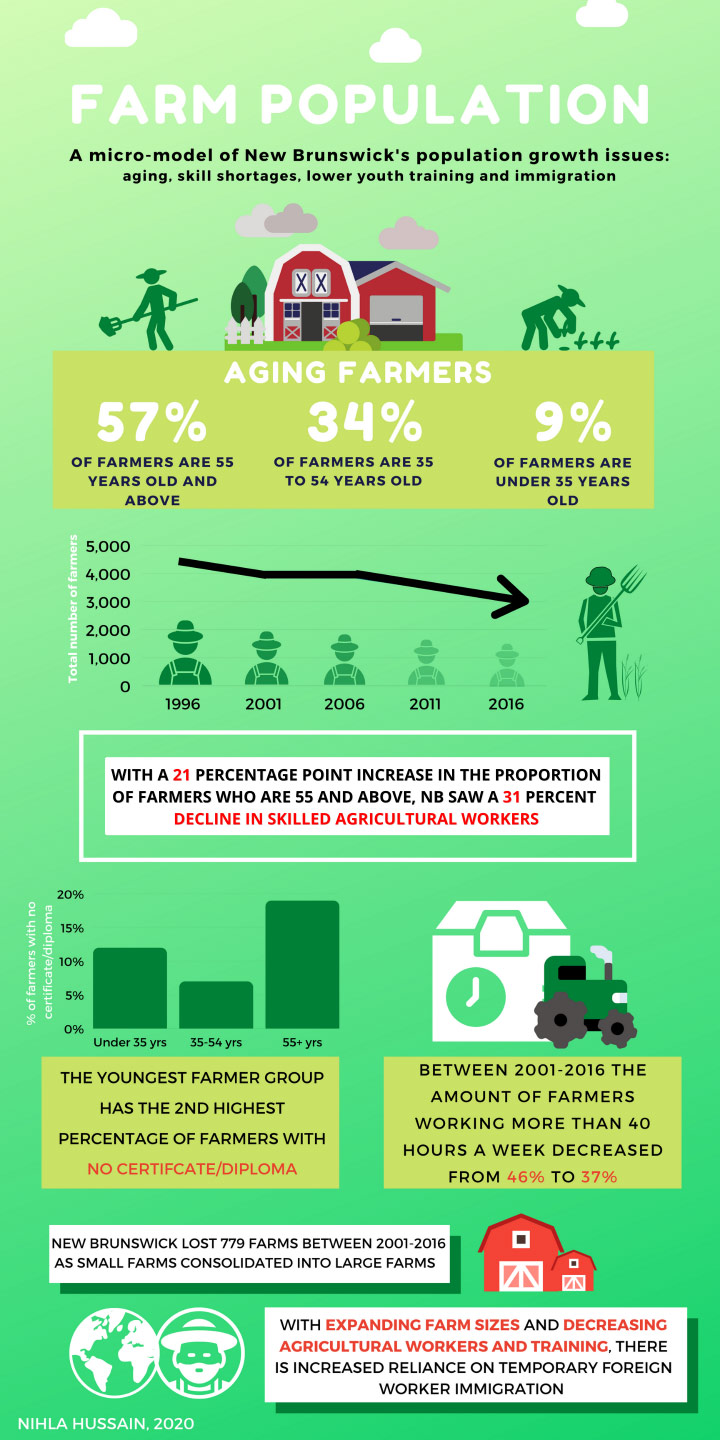New Brunswick Farm Population
Author: NB-IRDT
Posted on Aug 28, 2020
Category: Population Research

The topic of farming in New Brunswick has been growing in importance, and for good reason. A large proportion of NB farmers are nearing retirement, and the number of operating farms in the province is shrinking. Most recently, the onset of COVID-19 highlighted NB’s reliance on temporary foreign workers and food imports, emphasizing the existing strain on agricultural production.
These factors and more highlight the need for change to drive a flourishing agricultural sector. However, in order to support the province’s farm population, it is first important to understand how NB farm operators and farms are evolving.
This summer, Pathways to Professions student Nihla Hussain examined farm population trends in NB, including the size and value of farmland, the expenses and operating arrangements of farm businesses, and more. Her research aims to inform policy incentives that could encourage more people to take advantage of NB’s rural regions while also providing resources for young farmers to create sustainable farm businesses.
Meet the Researcher
Nihla Hussain is a third year Biology-Chemistry student at UNB, originally from Bangladesh and currently living in Saint John, NB. She has aspirations to combine her passion for STEM with humanitarian work and contribute to socioeconomic progress, and she credits Pathways to Professions with helping her build an analytical toolkit for research.

From May to August 2020, NB-IRDT hosted the very first Pathways to Professions: an experiential learning program that provided six UNB students with hands-on workplace experience and training in research methods and job readiness. Each month, our Student Spotlight series will highlight some of the students’ research findings on the population demographics and economic progress of New Brunswick.